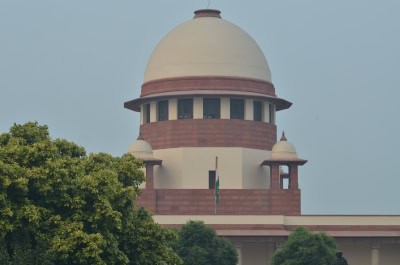New Delhi : The Supreme Court said on Friday that it would like to see the view of Madhya Pradesh High Court while declining to entertain a plea challenging the validity of the controversial MP ordinance regulating conversions due to inter-faith marriages.
A bench headed by Chief Justice S.A. Bobde and comprising Justices A.S. Bopanna and V. Ramasubramanian told Vishal Thakre, the advocate for the petitioner, “Approach the Madhya Pradesh High Court. We would like to have the views of the high court.”
The bench added that it had already sent similar matters back to the high court. In the past, the top court had refused to entertain other pleas on the same issue.
According to the latest plea, the law enacted by Madhya Pradesh, which mirrors an ordinance issued by the Uttar Pradesh government in the name of ‘Love Jihad’, infringes upon a person’s right to privacy and freedom of choice. The plea argued that the law violated the fundamental rights under Articles 14, 19(1)(a) and 21 of the Constitution.
On February 17, the Supreme Court had allowed an NGO to make Himachal Pradesh and Madhya Pradesh parties in a pending matter challenging their controversial laws regulating conversions due to inter-faith marriages. The court also permitted Muslim body Jamiat Ulama-I-Hind to become a party in the matter.
Advocate Ejaz Maqbool, representing the Jamiat, contended before the bench that a large number of Muslim men are being harassed under these laws in various parts of the country.
On January 6, the top court had issued notices to Uttar Pradesh and Uttarakhand governments on the pleas of the NGO ‘Citizens for Justice and Peace’ and others challenging the laws on religious conversions.
The controversial UP ordinance is connected with not only inter-faith marriages, but all religious conversions, and lays down elaborate procedures for any person who wishes to convert to another religion.
The Uttarakhand law entails two-year jail term for any person or persons found guilty of religious conversion through force or “allurement”, which could be in cash, in kind or material benefit.
Disclaimer: This story is auto-generated from IANS service.

